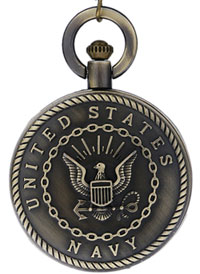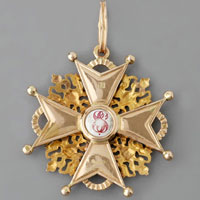Military antiques, particularly badges and medals, are easily one of the most highly regarded forms of antique collections across the globe. It is mainly due to the fact that each and every country around the world has their own form of military, along with their own types of traditions and history. Therefore, collecting antiques within these fields is a truly fascinating hobby for virtually anyone who is interested in history, particularly military history. Here, we will be exploring the world of antique military badges and medals, and will be delving into precisely how you can begin your very own journey into the world of antique military badge and medal collecting.

In the word stock of the United States of America militaria, military insignias are badges that were once worn by members of the armed forces. The United States Military Rank Insignias are far more than merely a token of appreciation. These insignia’s are literally badges of leadership. Military insignia’s are quite similar to patches and badges that are often worn by both firefighters and police officers. In a manner that is similar to civilian-service badges, military badges encompassed insignia’s that were awarded in order to specifically convey rank, as well as various qualifications for many different skills; ranging from Air Force pilot wings and Army, Navy, and Marines diver badges.
To the vast majority of antique military insignia collectors, however the term “badge” can be narrowed down far more specifically. The word badge is the term that is given to Orders (or more specifically that of governmental acknowledgements of certain acts of which were performed by either civilians or military citizens, and could have occurred during a war or during peace time) and were meant to be hung from a ribbon. This of course is distinctively different from a decorative medal (as it can also be a medal that is hung from a ribbon) as that in particular is only awarded for specific acts that were performed by military personnel in combat
While this unique distinction may appear to be simple enough, antique militaria collectors all too will revert to the common sheriff or firefighter association of the term when they begin discussing the topic of badges. Additionally they tend to utilize the word in order to describe virtually any and all form of metal insignias of which are pinned to one’s uniform as opposed to being hung from a ribbon.
It should of course be noted that the most easy military badges to be identified free of the threat of contradiction are the badges of which are worn by MPs (Military Police). These types of badges are crafted of stamped brass and are shield-shaped while additionally boasting all of the standard devices and elements of which are seen on typical police badges. For instance, an American flag, an eagle, a liberty cap hoisted on a pole, et cetera.
There are several types of antique badges that are notably small in size as well. And typically come to resemble what many people tend to refer to as a pin, as opposed to a badge, and are meant to be worn either on one’s jacket or hat. These types of smaller badges all too often refer merely to one’s skill or craft in the military, for instance, a welder or a surgeon. However, there are some other miniature badges indicates one’s more specific ability military attribute such as a parachutist’s badge or being the company’s bugler.
Antique military medals and badges should be reflected upon by the man or woman who earned them. These badges were incredibly hard-won and fierce symbols in which indicated the utmost bravery, valor, and overall skill. Each and every single one seeks to tell the tale of a precise moment in history and one incredible individual who in turn rose to the occasion and did whatever was called for in the striking moment at hand. These incredible, unique works of military art, are additionally stunningly beautiful, regardless of what their individual ribbons of color bear along with their brilliantly enameled crosses, metal stars, bars, or even commemorative coins.

How to Start Your Own Collection of Antique Military Badges
If you are interested in seeking to begin your own personal collection of military badges and/or medals, there are a number of great, easy ways to get started.
First and foremost however it should most certainly be noted that to begin a good quality collection, research is of course essential. Be sure that you always take the time to research the history of which surrounds the military antiques that you have selected. For instance, if you are selecting to collect medals that were given out during WWII, take the time to learn what the medal was given for, how many were given out during the conflict and what criteria was demanded in order for one to receive the medal. The more that you know about the history surrounding the item and timeline, the more you can determine which medals are more valuable and worth adding to your collection.
Another good tip, is to direct your focus onto one specific time period or war, as to not bombard and overwhelm yourself with a ton of items ranging from the Civil War to the Vietnam War. And always be sure to always keep a sharp eye out for good quality items as well, however you should also keep in mind that some items are far more rare than others, regardless of the overall condition that they are in.
Finally, be careful where you are purchasing your antique military badges and medals from. There are countless sources out there that are meant to only scam people who are new to the world of militaria and you may find yourself being taken for hundreds or thousands of dollars for an items that is nothing more than a replica or in far worse shape than it actually looks online. If possible, visit your local antiques dealers and never be ashamed to ask questions and be direct about what you are looking for. If they do not have the items or items on hand, more often than not they can significantly assist you in tracking down the item from a reputable source. When it comes to making such large investments, it is most certainly always better to be safe than sorry.
Leave a Reply